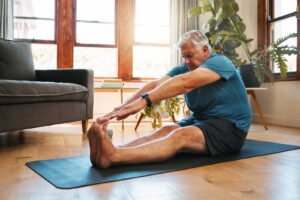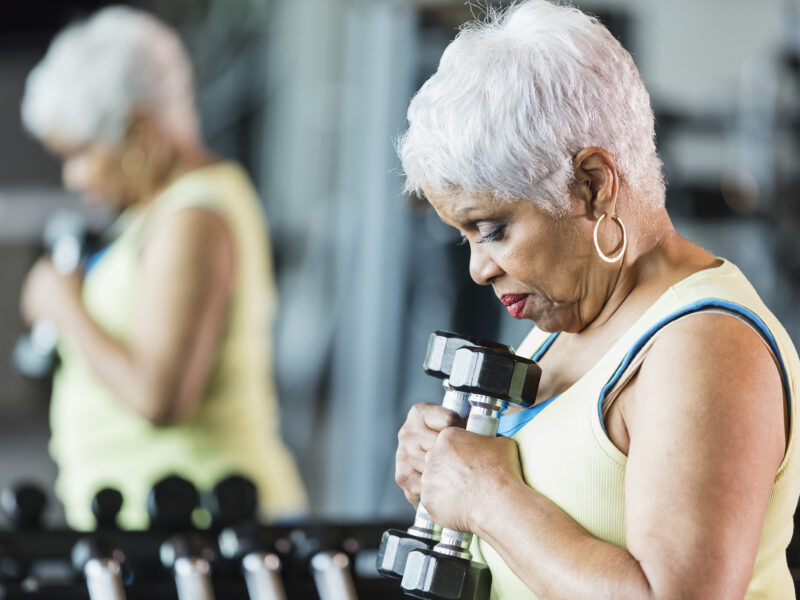Senior fitness is an essential aspect of overall well-being for older adults. Staying physically active as you age can help improve and maintain strength, flexibility, balance, and cardiovascular health, and it can enhance your quality of life.

Benefits of Senior Fitness
- Improved Physical Health: Regular exercise can help manage and prevent chronic conditions like heart disease, diabetes, osteoporosis, and arthritis.
- Better Mobility and Independence: Maintaining physical fitness can help seniors maintain their ability to perform daily activities independently.
- Mental Health: Exercise has been shown to reduce the risk of cognitive decline, boost mood, and reduce the risk of depression and anxiety.
- Social Engagement: Participating in group fitness classes or activities can provide opportunities for social interaction, reducing feelings of isolation.
- Balance and Fall Prevention: Strength and balance exercises are crucial for reducing the risk of falls, which can be a significant concern for older adults.
Types of Senior Fitness Activities
- Strength Training: Using resistance bands, dumbbells, or bodyweight exercises to improve muscle strength and maintain bone density.
- Balance and Flexibility Exercises: Tai Chi, yoga, and simple balance drills can help improve stability and reduce the risk of falls.
- Cardiovascular Exercise: Low-impact activities like walking, cycling, or swimming can enhance heart health and stamina.
- Functional Fitness: Focusing on exercises that mimic daily movements, such as squatting or lifting, to improve the ability to carry out everyday activities.
- Water Aerobics: Performing aerobic exercises in a pool is low-impact and can be gentle on the joints.
- Dance Classes: Ballroom, line dancing, or other dance forms can be a fun way to stay active while improving balance and coordination.
- Chair Yoga and Seated Exercises: These are modified forms of yoga and strength training that can be done while seated.
- Walking Groups: Joining a local walking group can provide a social and physical activity all in one.
Considerations for Senior Fitness
- Consult Your Doctor: Before starting any new exercise program, it’s essential to consult with your healthcare provider, especially if you have any existing medical conditions or are taking medication.
- Start Slow: If you haven’t been active, begin with light activities and gradually progress as your fitness level improves.
- Adapt Exercises: Choose exercises that suit your abilities and needs. There are many options for different fitness levels and mobility.
- Stay Hydrated: Drink plenty of water before, during, and after exercise.
- Warm-Up and Cool Down: Properly warm up and cool down to prevent injury and soreness.
- Listen to Your Body: Pay attention to any pain or discomfort, and don’t push yourself too hard. It’s okay to take breaks or modify exercises as needed.
- Consistency: Aim for regular, consistent exercise. Even short, frequent sessions can be effective.
Senior fitness is about maintaining health, function, and independence as you age. It’s never too late to start, and finding enjoyable activities that keep you moving can greatly enhance your overall quality of life.
Many community centers and senior living facilities offer senior-specific fitness classes and programs, so explore your local options for senior fitness.










